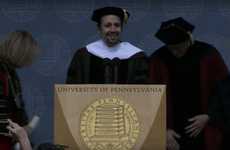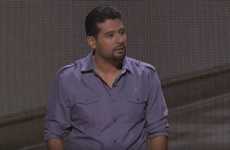
Need Inspiration?
Get inspired by 4,000+ keynote speaker videos & our founder, a top keynote speaker on innovation.
Sisonke Msimang Gives an Insightful Speech About Storytelling
Mishal Omar — January 19, 2017 — Keynote Trends
References: worldfellows.yale.edu & youtube
Sisonke Msimang is a writer and activist who gave a speech about storytelling which explains why the art of telling stories is not always conducive to effective social action.
There are three reasons for why storytelling can actually be harmful to social justice. The first is that when listening to a powerful story about someone's circumstances, the listener has the illusion of solidarity -- listening is an important but insufficient step towards social action, if it is not followed by an actual action. The second is that people are drawn towards likable characters and the less likable the protagonists are, the less likely the listener is able to find a moral obligation to understand the circumstances that shaped their life. Finally, people are too often interested in personal narratives rather than the bigger picture, and may understand individual plights but won't link those to larger systemic problems. In this case, the personal is not seen as political, but it should be in order for social justice to be effective.
Msimang also outlines the fact that we are currently living in a world where stories are replacing the news, and the decline of trust in facts is rampant. She outlines the importance of viewing both storytelling and the media as legitimate, credible mediums for information. The insightful speech ends with Msimang emphasizing that it is not the storytellers that require attention -- it is audiences. If audiences are curious, skeptical, understand social context and take the time to turn their beliefs into action, stories are once again powerful in the quest for social justice.
There are three reasons for why storytelling can actually be harmful to social justice. The first is that when listening to a powerful story about someone's circumstances, the listener has the illusion of solidarity -- listening is an important but insufficient step towards social action, if it is not followed by an actual action. The second is that people are drawn towards likable characters and the less likable the protagonists are, the less likely the listener is able to find a moral obligation to understand the circumstances that shaped their life. Finally, people are too often interested in personal narratives rather than the bigger picture, and may understand individual plights but won't link those to larger systemic problems. In this case, the personal is not seen as political, but it should be in order for social justice to be effective.
Msimang also outlines the fact that we are currently living in a world where stories are replacing the news, and the decline of trust in facts is rampant. She outlines the importance of viewing both storytelling and the media as legitimate, credible mediums for information. The insightful speech ends with Msimang emphasizing that it is not the storytellers that require attention -- it is audiences. If audiences are curious, skeptical, understand social context and take the time to turn their beliefs into action, stories are once again powerful in the quest for social justice.
6.6
Score
Popularity
Activity
Freshness

















